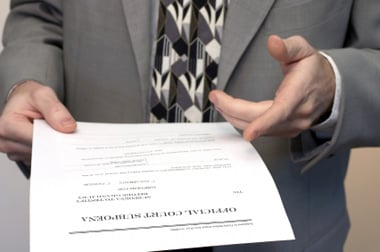Tracking Down Justice: Social Media’s Role in Process Serving
Curious how justice is served in the digital age? Dive into how social media helps legal process servers succeed.
1/10/20254 min read
Social Media: The Unexpected Ally
When you think of social media, you probably picture cat memes, vacation selfies, and viral dance challenges. But for legal process servers, these platforms have become powerful tools for tracking down hard-to-find individuals. It might surprise you, but a quick scroll through Instagram or LinkedIn can sometimes solve what hours of traditional searching could not.
Let’s explore how legal process servers are leveraging social media to ensure justice is delivered, one post at a time.
A Treasure Trove of Information
People share a lot on social media—sometimes too much! From tagging their location at a trendy coffee shop to announcing their weekend plans, these posts can provide valuable clues.
Imagine trying to serve documents to someone who’s intentionally avoiding being found. While they might avoid answering their phone or opening their door, their social media activity can leave a trail. Legal process servers use public posts, location tags, and even comments to piece together an individual’s movements.
And it’s not just personal accounts. Professional profiles on platforms like LinkedIn can reveal where someone works, making it easier to locate them during business hours.
Ethical Sleuthing: Staying Within Legal Boundaries
While social media is a goldmine of information, it’s important for legal process servers to use it responsibly. There are strict rules about privacy and ethical conduct that must be followed.
For instance, servers can only access publicly available information. Private accounts and restricted content are off-limits unless shared directly by the individual. Ethical servers also avoid deception—no creating fake profiles or impersonating someone else to gain access to private data.
By adhering to these guidelines, legal process servers maintain the integrity of their work while effectively utilizing social media.
When Location Tags Save the Day
Have you ever seen someone post a photo with a caption like, “Loving this view in Miami!”? For a legal process server trying to locate that person, such posts can be a jackpot.
Geotagging is a feature that lets users share their exact location when posting. This can help servers narrow down where someone might be, especially if they’ve recently moved or are traveling.
However, social media isn’t just useful for finding someone. It’s also a tool for verifying identities. A quick comparison of online photos and official documents can confirm you’ve got the right person before attempting to serve.
Connecting the Dots with Social Networks
Sometimes, finding one person involves identifying the people they interact with. Social media platforms make this easier by displaying connections—friends, family, coworkers, and more.
For example, if the person you’re trying to serve doesn’t share much online, their spouse or best friend might be more active. By observing these connections, legal process servers can gather indirect information that leads to successful service.
It’s a bit like putting together a puzzle. Each piece of information adds clarity until the full picture comes into focus.
The Role of Technology in Social Media Sleuthing
While manually scrolling through posts can be effective, it’s not always practical. This is where technology steps in. Advanced tools can analyze public profiles, identify patterns, and even track location history, saving legal process servers time and effort.
For instance, some software can aggregate data from multiple platforms, providing a comprehensive view of someone’s online presence. This helps servers act quickly, especially in cases where time is of the essence.
However, technology is a complement, not a replacement. The human element remains crucial in interpreting data and ensuring that all actions align with legal requirements.
The Unexpected Challenges of Social Media
Of course, social media isn’t a magic solution. Not everyone shares their life online, and some are savvy enough to limit what’s publicly visible. Others might provide misleading information, like using a fake name or outdated photos.
Legal process servers must approach social media with a critical eye, verifying all information before acting on it. They know that a single mistake—like serving the wrong person—can derail a case.
Why Social Media is Here to Stay
The use of social media by legal process servers isn’t just a passing trend—it’s becoming an essential part of the job. As platforms evolve and people continue to share their lives online, the opportunities for gathering useful information will only grow.
For clients, this means faster and more accurate service. For servers, it’s a reminder to stay adaptable and embrace new tools that make their work more efficient.
Final Thoughts
Social media might not be the first thing you think of when it comes to legal process serving, but it’s proving to be a game-changer. By tapping into the wealth of information people share online, legal process servers can overcome challenges and ensure justice is served.
So, the next time you post that vacation selfie or check in at your favorite restaurant, remember: you never know who might be watching—ethically, of course! For legal process servers, it’s all about connecting the dots and making the process smoother, one post at a time.




Reach out to us today!!!
Cell : (813)785-4361
Email : Service@lfieliteprocess.com


Office : (863)617-9257
